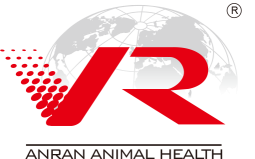First of all, let’s be clear: enterotoxicity is not enteritis. Enterotoxic syndrome is a mixed infection of the intestinal tract caused by a variety of therapeutic factors, so we cannot characterize the disease only for a certain therapeutic factor like enteritis. It will cause the chicken to overfeed, discharge tomato-like feces, scream, paralysis and other symptoms.
Although the mortality rate of this disease is not high, it will seriously affect the growth rate of chickens, and the high feed-to-meat ratio may also bring immunosuppression to immunity, resulting in immune failure, thus causing huge losses to farmers.
The occurrence of enterotoxic syndrome caused by this disease is not caused by one factor, but a variety of factors interact and influence each other. Mixed infections caused by complex intertwining.
1. Coccidia: It is the main cause of this disease.
2. Bacteria: mainly various anaerobic bacteria, Escherichia coli, Salmonella, etc.
3. Others: Various viruses, toxins and various stress factors, enteritis, adenomyosis, etc., may be the incentives for enterotoxic syndrome.
Causes
1. Bacterial infection
Common Salmonella, Escherichia coli, and Clostridium wiltii type A and C cause necrotizing enteritis, and Clostridium botulinum causes systemic paralytic toxin poisoning, which accelerates peristalsis, increases the excretion of digestive juice, and shortens the passage of feed through the digestive tract. Lead to indigestion, among which Escherichia coli and Clostridium welchii are more common.
2. Virus infection
Mainly rotavirus, coronavirus and reovirus, etc., mostly infect young chickens, mainly popular in winter, and generally transmitted orally through feces. Infection of broiler chickens with such viruses can cause enteritis and impair the absorption function of the intestinal tract.
3. Coccidiosis
The large number of intestinal coccidia grow and multiply on the intestinal mucosa, resulting in thickening of the intestinal mucosa, severe shedding and bleeding, which almost make the feed indigestible and absorbable. At the same time, the absorption of water is significantly reduced, and although chickens drink a lot of water, they will also be dehydrated, which is one of the reasons why broiler chicken manure becomes thinner and contains undigested feed. Coccidiosis causes damage to the intestinal endothelium, causing intestinal inflammation in the body, and the endothelial damage caused by enteritis creates conditions for the attachment of coccidial eggs.
non-infectious factors
1.Feed factor
A lot of energy, protein and some vitamins in the feed can promote the proliferation of bacteria and coccidia and aggravate the symptoms, so the richer the nutrition, the higher the incidence and the more serious the symptoms. The incidence of morbidity is also relatively low when feeding a diet with relatively low energy. In addition, improper storage of feed, spoilage, moldy freezing, and toxins contained in feed directly enter the intestine, causing enterotoxic syndrome.
2.Massive loss of electrolytes
In the process of the disease, coccidia and bacteria grow and multiply rapidly, leading to indigestion, impaired intestinal absorption, and reduced electrolyte absorption. At the same time, due to the rapid destruction of a large number of intestinal mucosal cells, a large number of electrolytes are lost, and physiological and biochemical obstacles, especially the large loss of potassium ions, will lead to excessive cardiac excitability, which is one of the reasons for the significant increase in the incidence of sudden death in broilers. one.
 Effects of toxins
Effects of toxins
These toxins may be foreign or self-produced. Foreign toxins may exist in feed, or in drinking water and by-product components of feed, such as aflatoxin and fusarium toxin, which directly cause liver necrosis, small intestinal necrosis, etc. Mucosal bleeding, causing digestion and absorption disorders. Self-produced toxins refer to the destruction of intestinal epithelial cells, under the action of bacteria, putrefaction and decomposition, and the death and disintegration of the parasite release a large amount of harmful substances, which are absorbed by the body and cause auto-poisoning, thereby Clinically, there are cases of excitement, screaming, coma, collapse and death.
Disorderly use of disinfectants. In order to save costs, some farmers use low-cost disinfectants as panacea to control some diseases. The long-term diarrhea of poultry is caused by the imbalance of flora in the intestinal tract caused by the disinfectants for a long time.
stress factor
Changes in weather and temperature, stimulation of hot and cold factors, excessive stocking density, low brooding temperature, humid environment, poor water quality, feed replacement, vaccination and group transfer can all cause broiler chickens to produce stress responses. The stimulation of these factors can also make broiler chickens endocrine disorders, decreased immunity, resulting in mixed infection of a variety of pathogens.
physiological reasons.
Broilers grow too fast and need to eat a lot of feed, while the development of gastrointestinal function is relatively lagging behind.
Post time: Sep-30-2022


